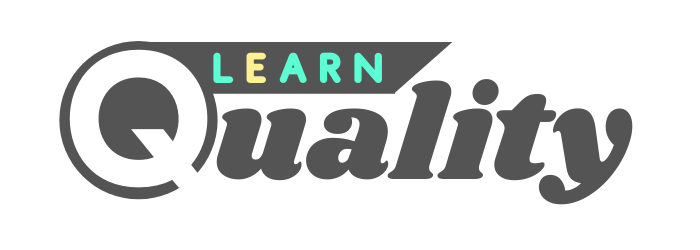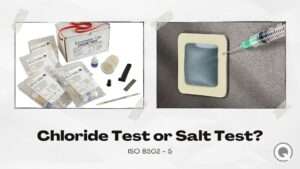QA and QC course are crucial aspects of the ever-changing and competitive oil and gas industry, as the individuals taking these courses ensure the highest quality standards are maintained.
To address the increasing demand for proficient quality management experts, the Institute for Oil & Gas Sector (IOGS) is pleased to introduce the Project Quality Professional (PQP) certification course.
This comprehensive and industry-focused program empowers ambitious individuals with the essential expertise and capabilities required to thrive in various positions, including but not limited to the following:
- QA QC Manager
- Inspector
- Supervisor
- Engineer
- Technician.
Now, let’s delve into the program’s particulars and explore how a QA QC course can shape your career in the project quality management of the oil and gas industry.

Understanding QA QC Course
QA and QC are essential processes in any industry, guaranteeing products meet customer expectations. Moreover, in the oil and gas sector, where precision, safety, and compliance are paramount, QA QC professionals have a crucial role. Additionally, the IOGS QA QC course delivers a comprehensive curriculum that cultivates vital skills for success in this sector.
Here are some key points to understand about a QA QC course:
Purpose
Moreover, a QA QC course serves to instruct participants on the principles, methodologies, and best practices of quality assurance and control. Its goal is to enhance their ability in identifying and addressing quality-related concerns.
Content
In this course, you can expect coverage of quality management systems, quality control techniques, and quality audits.
Additionally, it addresses documentation and record-keeping, statistical quality control, inspection methods, quality assurance planning, and regulatory compliance.
Learning Outcomes
Upon course completion, participants will possess a comprehensive grasp of quality management principles. Moreover, they will be proficient in implementing quality control processes, conducting inspections and tests, analyzing quality data, and contributing to continuous improvement initiatives.
Course Delivery
QA QC courses can be offered in different formats, such as in-person training, online courses, or a mix. Furthermore, these courses typically incorporate lectures, case studies, practical exercises, group discussions, and assessments.
Certification
Additionally, certain QA QC courses provide certification after successful completion, which boosts your professional credentials. This certification showcases your expertise and abilities to prospective employers.
Moreover, prevalent certifications such as Certified Quality Technician (CQT) and Certified Quality Auditor (CQA), and Project Quality Professional (PQP) are available in this field.
Industry-specific Focus
Certain courses offer industry-specific modules designed to cater to particular work sectors. Furthermore, a QA QC course for the construction industry, for instance, may delve into topics such as materials testing, construction codes and standards, and quality control in structural engineering, among others.
Above all, these specialized modules provide learners with the necessary knowledge and skills to address the unique challenges and requirements of their respective industries, enabling them to excel in their QA QC roles.
Career Opportunities
By completing a QA QC course, you can unlock diverse career prospects. Additionally, you can pursue one of the following roles in industries that prioritize quality management and compliance:
- Quality assurance technician
- Quality control inspector
- Quality auditor
- Quality engineer
- Quality manager
PQP Course Curriculum and Structure
The PQP certification program includes, but is not limited to, the following topics:
-
Quality and its meaning
- This subtopic provides an introduction to the concept of quality and its significance in project management. Moreover, it explores different definitions of quality and its relationship to customer satisfaction. Additionally, it delves into the importance of understanding and meeting customer expectations, as well as the role of quality management in achieving project objectives.
-
Overview of project quality management
- This section provides an overview of project quality management, including its importance in ensuring project success. Moreover, it covers the key processes and activities involved in managing quality throughout the project lifecycle. Furthermore, it discusses the various tools and techniques used for quality planning, quality assurance, and quality control. Additionally, it examines real-world case studies to illustrate the application of quality management principles in different industries and project environments.
-
Strategies used to achieve the quality objectives of a project
- Here, different strategies and approaches for achieving quality objectives in a project are discussed. In particular, it includes the identification of quality requirements, setting quality goals, and developing appropriate plans to meet those objectives. Moreover, it explores the significance of engaging stakeholders in the quality planning process and the use of quality management techniques such as benchmarking, risk analysis, and quality audits to ensure the project’s quality objectives are effectively met.
-
Information on quality management plan
- This subtopic focuses on the quality management plan, which outlines the approach and activities for ensuring quality in a project.
- Additionally, it covers the components of a quality management plan, such as quality objectives, quality standards, quality control measures, and quality assurance activities. Moreover, it emphasizes the role of the quality management plan in guiding project teams by providing a framework for quality-related decision-making, resource allocation, and risk mitigation.
- Furthermore, it highlights the importance of regularly reviewing and updating the quality management plan to adapt to changing project circumstances and stakeholder requirements.
-
What plan, manage, and control quality is
-
Standard and Best Practices
-
Internal and external standards
-
Audit and QA vs Audit
-
Quality Control, Inspection & Testing
-
Destructive and Non-Destructive Tests
-
QA vs QC vs Inspection
-
Cost of quality and quality failure
-
Consequences of Internal and external failure
-
Cost of conformance and non-conformance
-
Non-conformance reporting
-
Corrective and preventive actions
-
Internal and external deliverables
-
Sampling and their types
-
Validation and acceptance
-
Quality control and assurance tools
-
Organizations Process Assets (OPAs)
-
Common terms and definition
-
Understanding on risks and issues
Career Opportunities
Upon completing the QA QC course, a world of exciting career opportunities awaits you in the oil and gas sector. Here are some of the roles you can pursue:
QA QC Manager
As a QA QC Manager, you’ll oversee quality control processes, manage teams, and ensure industry standards are met. Moreover, your expertise will play a vital role in maintaining product integrity and ensuring customer satisfaction.
Furthermore, your strategic leadership and ability to implement quality improvement initiatives will drive continuous enhancement of quality control practices and drive overall business success.
QA QC Inspector
QA QC Inspectors conduct inspections, audits, and testing to ensure adherence to quality standards and laws. Moreover, your meticulous attention to detail and dedication to perfection make you an invaluable asset to any firm.
Furthermore, your ability to identify potential non-conformities and implement preventive measures contributes to the overall improvement of product quality and customer satisfaction.
QA QC Supervisor
In this position, you’ll serve as a team leader, offering direction and ensuring effective completion of quality control tasks. Furthermore, to uphold high standards, you’ll need to coach and inspire your staff. Additionally, by fostering a collaborative and supportive work environment, you can promote innovation and continuous improvement within the team.
QA QC Engineer
QA QC Engineers play a key role in designing and implementing quality control processes. Moreover, they ensure projects meet criteria and rely on technical expertise and analytical skills for successful execution.
Moreover, their continuous monitoring and evaluation of quality metrics enable them to make data-driven decisions and optimize production outcomes.
QA QC Technician
QA QC Technicians play a crucial role by conducting tests, inspections, and calibrations. Furthermore, their hands-on approach and meticulousness significantly contribute to overall quality assurance efforts.
Furthermore, their expertise in identifying potential issues and implementing corrective measures enhances the effectiveness of quality control procedures.
Take Action
Are you ready to embark on an exciting journey toward a rewarding career in the oil and gas industry? Enroll in the Project Quality Professional (PQP) course today and unlock a world of opportunities.
Take the first step toward becoming a qualified QA QC professional by visiting the IOGS website at https://www.iogs.org/project-quality-professional-certification to get complete course information.
Conclusion
The QA QC course from IOGS is transformative, providing essential skills for the oil and gas industry.
Basically, it offers diverse job prospects, including QA QC Manager, Inspector, Supervisor, Engineer, and Technician roles. Enroll now to enhance your profession and broaden your expertise.
Take action today and secure your future in the dynamic world of quality assurance and quality control.










